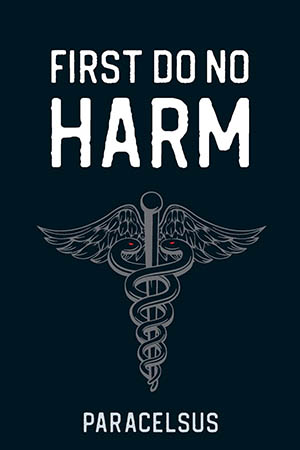A review by me of this book has been published in the excellent journal IM-1776. The first paragraph, and a link to the entire review, and the journal itself, can be found below.
America is already a low-trust society, and with good reason societal trust is rocketing further downward. Yet Americans still, by and large, trust medical institutions — perhaps more than any other set of entities. The pseudonymous Paracelsus, a practicing physician, in his book with the deliberately ironic title First Do No Harm, narrates how we are foolish to trust the medical profession, what is really the medical industry. Published by Calamo Press, First Do No Harm tells us, in short, that the two words that characterize American medicine are not “health and healing,” or even “science and rationality,” as one might think, but rather “corruption and oligarchy.”
. . . Read more at IM-1776!

